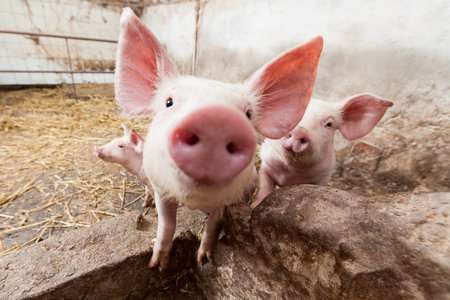Despite PED-positive assembly yards, the pork industry is working to eliminate the virus
By Jennifer Jackson
Pork industry representatives are reminding farmers that with the arrival of winter comes a higher risk for porcine epidemic diarrhea virus (PEDV) transmission.
In Ontario, over 90 per cent of all PED cases have been eliminated, according to an Ontario Pork Industry Council (OPIC) and Swine Health Ontario (SHO) PED Dec. update.
Currently, less than 1 per cent of pig sites in Ontario are still infected with PED.
The OPIC update reminds producers of high-risk transmission points:
- Some assembly sites in Ontario are PEDV positive. Any connection with high-risk contact points, such as these assembly sites or packer docks, must be treated as high risk for PEDV transmission.
- Transportation is the link between your farms and these high-risk contact points. All involved parties should be aware of cab and trailer management practices including cleaning, scheduling, and disinfection.
- And, when practicing these precautions, you are also aiding in the prevention of, and protection from, other diseases.
The virus presents a heightened risk in the winter, says Lori Moser, manager of SHO.
“PEDV and related coronaviruses survive better in cold, wet weather. This is compounded by difficulties in executing transport biosecurity protocols and cleaning and disinfection in the cold, snowy weather we are experiencing now,” she says.
And the virus itself is very infectious, according to George Charbonneau, veterinarian at South West Ontario Veterinary Services.
“Very small quantities of the virus are capable of causing infection,” he says.

Because PED is transmitted orally and through fecal matter, hogs can track in contaminated matter through trucks, or by foot on high-risk sites, says Moser.
In fact, transportation throughout the year is one of the most significant risks for disease transmission.
Assembly yards are a central component of the risk encountered in transporting hogs, according to Chris Byra, manager of the Canadian Swine Health Intelligence Network.
“Ontario has assembly yards positive for PEDV,” he says. Some assembly yards will likely remain positive in the future due to remaining positive farms and unreportable cases, according to Byra.
However, the yards carefully manage designated areas for input and output of hogs, thus limiting any unnecessary contamination and abiding by strict protocol. The strength of these protocols is demonstrated by the fact that “for nearly a year, there have been no Canadian cases (of PED) resulting from these assembly yards,” he says.
In addition to the assembly yards, there are still farms in Ontario that are dealing with the virus. This fact leaves some in the industry frustrated, says Byra.
The OPIC’s Area Regional Control and Elimination program provides producers with resources to manage and eliminate diseases of interest. Currently, the program is prioritizing the management of PED and porcine reproductive and respiratory syndrome. Participation is voluntary. Moser hopes, however, the industry can eliminate PED at all remaining farms by the end of the summer of 2017.
“Our goal through the current work is to eliminate PED from Ontario swine herds with an effective response in place for any new breaks and use this work as a model to manage any future disease challenges,” she says.
“Producers should consider their high-risk contact points and take steps to reduce those risks.”
Click here to see more...